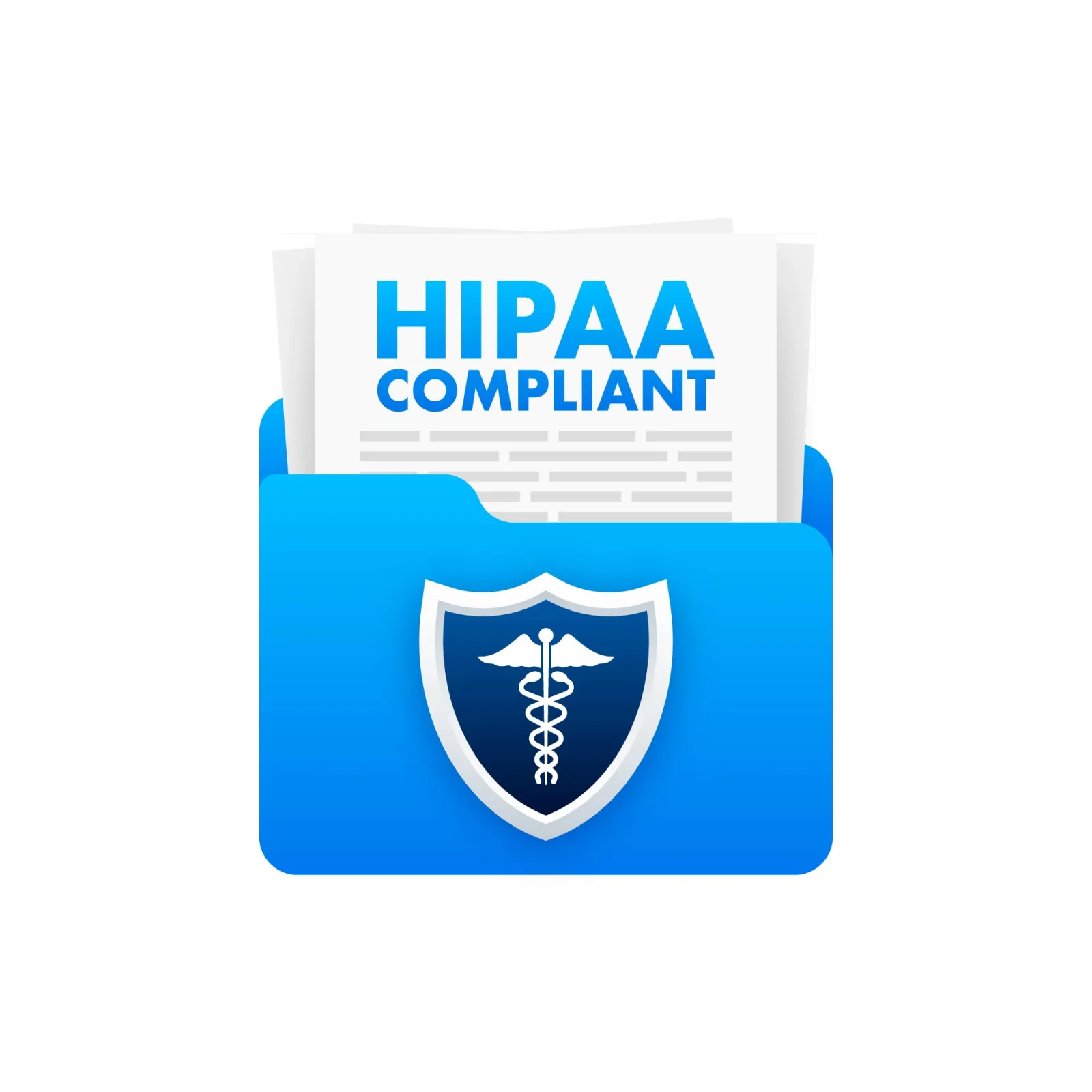Introduction: HIPAA Training is Necessary for Healthcare Organizations
In healthcare, keeping patient data safe is not just about following the rules—it's about doing what's right. The Health Insurance Portability and Accountability Act (HIPAA) sets the standards for protecting sensitive patient information, but understanding these rules can be tricky for anyone.
For healthcare organizations, the stakes are high: breaking these rules can lead to big fines, legal trouble, and damage to your reputation. However, with the right strategies and tools, compliance can be more than just a checkbox; it can be a cornerstone of trust and excellence in patient care.
This article will discuss the key aspects of HIPAA compliance, from the key highlights of the HIPAA laws to the setup for effective training programs and compliance tracking. We will also show you how Healthcare Compliance Pros (HCP) can help make this process easier and ensure that your organization meets and exceeds
HIPAA standards.

Essential Insights for Compliance and Best Practice
Common Misconceptions & Improving HIPAA Training
Let's clear up some common myths about HIPAA training:
✘ Myth 1: Once HIPAA training happens, then you're good. One and Done?
✓ Reality 1: HIPAA training is an ongoing process. Rules change,
technology evolves, and new threats emerge. Regular refreshers are key.
✘ Myth 2: HIPAA is just for Doctors and Nurses?
✓ Reality 2: Anyone handling PHI needs training, including
administrative staff, IT personnel, and support staff.
✘ Myth 3: The primary training goal is all about avoiding fines?
✓ Reality 3: While avoiding fines is an important risk, the main goal of HIPAA revolves around safeguarding patient privacy and building a culture of respect for patient data.
Who Needs HIPAA Training and Why?
HIPAA training isn't just for doctors and nurses. Everyone who handles Protected Health Information (PHI) needs to be trained. This includes:
- Covered Entities: 🏥 Healthcare providers, health plans, and healthcare clearinghouses.
- Business Associates: 🤝 Billing companies, IT service providers, and any third party interacting with PHI.
- Relevant Employees: 👩💼 From clinical staff to administrative personnel, receptionists, and even housekeeping staff who might come into contact with PHI.

Why is HIPAA so important?
Privacy is classified as a human right, so it is enshrined into law. Safeguarding patient data is at the center of HIPAA rules.
- Legal Compliance: HIPAA is federal law. Not following it can lead to big fines and legal trouble.
- Data Security: Keeping patient data safe is crucial. Training helps prevent data breaches and keeps patient trust.
- Operational Efficiency: Knowing HIPAA rules aims to help streamline processes, reduce mistakes, and lower risks.
How to Improve HIPAA Training:
To make sure HIPAA training is effective and compliant, follow these best practices:
Engaging Training: Use interactive and engaging methods, such as real-life scenarios, quizzes, and role-playing, to make training more memorable and impactful.
Regular Updates: Update training content regularly to reflect changes in rules, technologies, and organizational policies. This keeps the workforce informed and compliant with the latest standards.
Risk-Based Approach: Regular risk assessments should be conducted to determine the frequency and content of training. This ensures that training is targeted and effective in preventing potential violations.
Supportive Educational Approach: Provide ongoing support and resources to employees, ensuring they have access to compliance advisors and continuous education. This fosters a culture of compliance and encourages employees to take an active role in protecting PHI.
By following these guidelines, healthcare organizations can ensure that their HIPAA training programs are compliant and effective in protecting patient data and maintaining a culture of security and compliance.
What is the Frequency of HIPAA Training & Content?
HIPAA training is essential for staying compliant, but how often should it be done? Here's a simple guide:
Initial Training: Are you onboarding?
New employees should get HIPAA training as part of their onboarding process. This training introduces them to the basics of HIPAA and their responsibilities in handling Protected Health Information (PHI).
Ongoing Training: Are you maintaining?
* While HIPAA doesn't specify an exact frequency for training, it's best to do annual refreshers for all staff who handle PHI. This keeps everyone updated on any changes to HIPAA rules and reinforces their understanding of compliance policies and procedures.
Training Upon Material Changes: Are you correcting?
* Training should also happen when there are significant changes to policies and procedures that affect an employee's role. This ensures that everyone is aligned with the latest rules and organizational policies.
Risk Assessment and Security Awareness: Are you protecting?
* The frequency of HIPAA training can also depend on risk assessments. Organizations should regularly check for potential HIPAA violations and adjust their training frequency accordingly. Given the rapidly changing threat landscape, it's advisable to provide security awareness training more frequently, at least twice a year, with periodic reminders and updates.
The Consequences of Non-Compliance
Not following HIPAA rules can lead to serious consequences, including financial penalties, legal trouble, reputational damage, and operational disruptions. But by understanding these risks and using effective strategies, healthcare organizations can avoid these problems and keep patient data safe.
❌ Consequences of Non-Compliance:
- Financial penalties are based on the level of culpability. As of 2024, financial penalties ranged from $127 to $1,919,173 per violation.
- The OCR typically issues Corrective Action Plans to the organization as part of the civil settlement.
- Depending on the scope of liability, criminal penalties can apply to covered entities and individuals if the Department of Justice (DOJ) becomes involved.
- Non-financial penalties can include reputational damage and loss of patient trust.
- Operational disruptions and increased administrative burden.

Implementing Effective HIPAA Training
Effective HIPAA training isn't just about meeting requirements. Our team of advisors recommends comprehensive and engaging training courses to ensure that employees understand and apply the principles in their daily work.
Core Topics
- PHI Handling: Training should cover the importance of safeguarding PHI, how to recognize and handle it correctly, and when it can be disclosed.
- Security Measures: This includes encryption, password protection, physical safeguards, and strategies to prevent unauthorized access to PHI.
- Patient Rights: Employees should know about patients' rights concerning their PHI, empowering patients to exercise their rights.
- Breach Response: Training must equip healthcare personnel with the skills to respond to data breaches effectively, including reporting requirements and mitigation strategies.
How to Track Effective Training Programs
Setting up and tracking an effective HIPAA training program is key for healthcare organizations to ensure compliance, protect patient data, and build a security culture. Here's how Healthcare Compliance Pros (HCP) can help you achieve this:
1. Leverage Comprehensive Compliance Solutions
HCP's strength lies in offering comprehensive compliance
solutions tailored to your organization's needs. Our approach includes:
- Customized Training Programs - HCP develops training content appropriate for your organization's size, structure, and unique challenges.
- Role-Based Learning - Our programs target different organizational roles, ensuring everyone gets relevant, actionable information.
- Interactive Learning Modules - Engaging, multimedia content keeps learners interested and improves retention.
2. Utilize Innovative Software
Our innovative compliance software is designed to streamline
the implementation and tracking of your training program:
- Automated Scheduling - Set up recurring training sessions and reminders to ensure ongoing compliance.
- Progress Tracking - Monitor individual and team progress through intuitive dashboards.
- Certification Management - Easily track and manage employee certifications and renewals.
3. Provide Continuous Support
HCP's dedicated support team is always ready to assist:
- Expert Guidance - Our compliance advisors offer personalized support to address your specific concerns.
- Regular Updates - We keep your training content current with the latest regulatory changes and best practices.
- Troubleshooting Assistance - Technical support is available to ensure smooth implementation and usage of our software.
4. Implement a Proactive Approach
Stay ahead of potential compliance issues with our proactive
strategies:
- Security Risk Assessments - Regular evaluations help identify areas for improvement in your training program.
- Integrate into Policies & Procedures - We help integrate your training program with your overall compliance policies for a cohesive approach.
- Continuous Improvement - Our team analyzes training outcomes to refine and enhance your program over time.
5. Track and Measure Success
Effective tracking is key to demonstrating the success of
your training program:
- Detailed Reporting - Generate comprehensive reports on training completion rates, test scores, and more.
- Audit Trail - Maintain a clear record of all training activities for audit purposes.
- ROI Analysis - Measure the impact of your training program on overall compliance and operational efficiency.

Building Effective Compliance and Training to Encourage Success
Implementing an effective HIPAA training program is more than just checking a box; it's about creating a culture of compliance that protects your patients, staff, and organization. With HCP as your partner, you're not just meeting regulatory requirements; you're empowering your team with the knowledge and tools they need to excel in their roles and provide the highest standard of care.
Let HCP guide you through this responsibility. Our comprehensive solutions, innovative technology, and unwavering support will help you transform HIPAA compliance from a challenge into an opportunity—an opportunity to lead, excel, and make a real difference in the lives of those you serve.
Conclusion
As we wrap up our look at HIPAA compliance, it's clear that protecting patient data is not just about following rules—it's about doing what's right. The stakes are high: breaking these rules can lead to big fines, legal trouble, and damage to your reputation. However, with the right strategies and tools, compliance can be more than just a checkbox; it can be a cornerstone of trust and excellence in patient care.
Remember, HIPAA compliance is a living culture that needs
continuous effort and dedication. By embracing this culture, you are meeting regulatory standards and building a foundation of trust, security,
and excellence in healthcare. Let HCP be your partner in this journey, ensuring
that your organization stays compliant, secure, and committed to the highest
standards of patient care.

